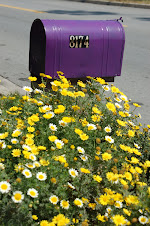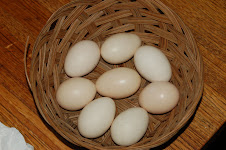Cnidoscolus chayamansa a Euphorbiaceae (Cornucopia II a source book of edible plants by Stephen Facciola) A popular leafy vegetable in Mexican and Central American cuisines, similar to spinach. The leaves must be cooked to eat as the raw leaves are toxic. A USDA study in Puerto Rico reported that higher yields of greens could be obtained with chaya than any other vegetable they had studied. In another study chaya leaves were found to contain substantially greater amounts of nutrients than spinach leaves
Young Chaya leaves and the thick, tender stem tips are cut and boiled as a spinach. It is a tasty vegetable, and is exceptionally high in protein, calcium, iron, and vitamin A. In fact, levels of chaya leaf nutrients are two to threefold greater than any other land based leafy green vegetable. Chaya leaves have a possible antidiabetic effect.
Chaya leaf is a good source of protein, vitamins, calcium, and iron; and is also a rich source of antioxidants. However, raw chaya leaves are toxic as they contain a glucoside that can release toxic cyanide. Cooking is essential prior to consumption to inactivate the toxic components; in this chaya is similar to cassava, which also contains toxic hydrocyanic glycosides and must be cooked before being eaten.
Traditionally leaves are immersed and simmered for 20 minutes and then served with oil or butter. Cooking for 20 minutes or more will render the leaves safe to eat. The stock or liquid the leaves are cooked in can also safely be consumed as the cyanide is volatilized as Hydrogen Cyanide (HCN) during cooking. Do not cook in aluminum cookware as a toxic reaction can result, causing diarrhea..... (this information was gathered from various sources please do your own research before trying to eat it)
Passion Vine:
Pasa floria Passion Vine, (there are a lot of different cultivars and i do not know this ones name & have not seen it bloom yet) evergreen growing on the fence just south of the cloths line...
Last time my sister GP visited the Farm we were taking in the Swap Meet, a family tradition buy this time...low and behold there was a passion vine being carried home by a very friendly couple.. when i complemented the vigorous specimen they had purchased, she in her best broken English began to tell me all the properties it has. She told us that the leaves are used for a sedative/calming effect, flowers for the heart, and the fruit for energy, there for this is why they had purchased it! and not to forget the great screening value it has when grown on a fence or trellis she said! All in all, a really great plant! it was a brief encounter but a lovely exchange that Dad would have truly enjoyed and relished...
 On the 12th of July Oscar and I took a hike up to the UCR Botanic garden to check on a a very unusual Holly tree( Ilex Latfolia,Trajo) that he planted some 5-7 years ago in the gardens which he acquired from Dad's collection....We were both pleased to find it doing quite well and is approx 10-15 feet tall now ... and will do better now that the very large weed trees have been removed and it can breath and get some real sun! this Holly tree will grow to 60 ft tall...the mature one on the Farm property is in the back north/west corner and is approx 40ft tall…
On the 12th of July Oscar and I took a hike up to the UCR Botanic garden to check on a a very unusual Holly tree( Ilex Latfolia,Trajo) that he planted some 5-7 years ago in the gardens which he acquired from Dad's collection....We were both pleased to find it doing quite well and is approx 10-15 feet tall now ... and will do better now that the very large weed trees have been removed and it can breath and get some real sun! this Holly tree will grow to 60 ft tall...the mature one on the Farm property is in the back north/west corner and is approx 40ft tall…  we studied many things that lovely morning and enjoyed ourselves immensely..I learned quite a few new plant names from Oscar i just wish that i could remember them as well as he!
we studied many things that lovely morning and enjoyed ourselves immensely..I learned quite a few new plant names from Oscar i just wish that i could remember them as well as he!

























